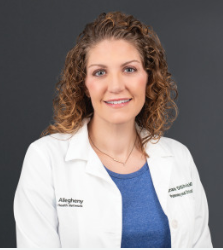Article
Safer Opioid Dispensing Practices Help Prevent Tragedies
Pharmacy Times' medication safety analyst says preventive measures can reduce the risk of common, life-threatening errors involving opioid oral solutions.
medication safety analyst says preventive measures can reduce the risk of common, life-threatening errors involving concentrated opioid oral solutions.
Pharmacy Times.
Pharmacy Times
PLAINSBORO, NJ (May 3, 2010)—Overdoses of concentrated opioid oral solutions are often the result of a simple prescribing or pharmacy error, according to a new report in the April 2010 issue of Thereare steps health professionals can take to avoid them.In the article “Preventing Errors with Concentrated Opioid Solutions,” columnist and medication safety analyst Michael J. Gaunt advocates practical changes prescribers and pharmacists should implement to safeguard patients from the potentially devastating consequences of an incorrect dose of these powerful pharmaceuticals.
ISMP Medication Safety Alert! Community/Ambulatory Care Edition,
Gaunt, also the editor of says even the location of these products on pharmacy shelves can cause confusion that ends in an error. Measuring and labeling mix-ups—for example, physicians who prescribe medications in milliliters instead of milligrams—have resulted in patients receiving doses of morphine that were 20 times the amount prescribed. Gaunt cites the haunting story of a patient who received a 100-mg dose of morphine instead of the prescribed 5-mg dose. The man suffered organ failure, entered into a coma, and required mechanical ventilation.
Pharmacy Times,
published by Intellisphere under parent company MJH & Associates, features a medication safety article in each issue as part of its larger mission of providing “Practical Information for Today’s Pharmacist.” “Medication safety issues are often where pharmacists can have the biggest impact on healthcare,” says Mike Hennessy, Chairman and CEO of MJH & Associates. “It’s also one of the most important areas in which communication and coordination between the pharmacist and the prescribing physician is essential.”
Pharmacy Times
In the April issue of , Gaunt explains how pharmacists can reduce such errors by rethinking pharmacy storage and organization, optimizing pharmacy workflow systems, standardizing units of measurement, and instituting more comprehensive labeling and alert systems. First and foremost, Gaunt urges pharmacies to “educate staff about the potential for errors with opioid liquids and why such errors occur.”
Pharmacy Times
By studying and implementing 14 best practices outlined in and encouraging compliance from local physicians, pharmacy staff can promote the safe use of these medications in their communities and prevent tragedies caused by simple, preventable mistakes.
About Pharmacy Times
Pharmacy Times
Pharmacy Times
is a clinically-based, monthly journal providing practical information pharmacists can use in their everyday practice. Each issue contains articles and features covering medication errors, drug interactions, patient education, pharmacy technology, disease state management, patient counseling, product news, pharmacy law, and specialty pharmacy. is accredited by the Accreditation Council for Pharmacy Education (ACPE) as a provider of free continuing pharmacy education.
Pharmacy Times
Pharmacy Times, The American Journal of Managed Care, The American Journal of Pharmacy Benefits, MDNG,
, Oncology & Biotech News, Oncology Net Guide, Contemporary Oncology,
Oncology Net Guide: Nurses’ Edition.
is owned by Intellisphere, LLC, a leading provider of health care publishing, research, information, and education. Operating within both traditional and digital media channels, Intellisphere serves the needs of health care professionals through an extensive suite of magazines, journals, e-mail databases, Web sites, events and personal meetings. Intellisphere reaches more than half a million health care professionals through HCPlive.comand
Pharmacy Times’




